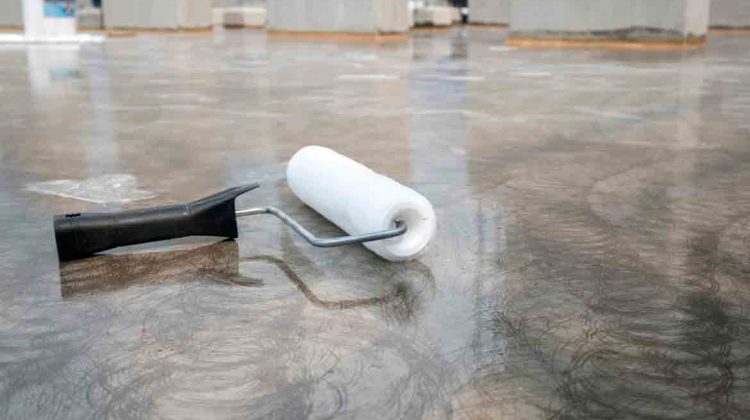
Water-based sealers are an integral part of modern construction and maintenance, offering a versatile and environmentally friendly solution for protecting surfaces from various forms of damage. From concrete driveways to wooden decks, water-based sealers provide a protective barrier that enhances longevity and appearance. In this comprehensive guide, we’ll explore what Water Based Sealers are, how they work, their benefits, and their diverse applications.
Understanding Water-Based Sealers
Water-based sealers, also known as waterborne sealers, are coatings formulated with water as the primary solvent. Unlike solvent-based sealers that use volatile organic compounds (VOCs) as their base, water-based sealers rely on water as the carrier for the active ingredients. These sealers can be transparent or tinted, and they are designed to protect surfaces from a variety of damaging factors, including moisture, UV rays, stains, and wear.
Key Characteristics of Water-Based Sealers
- Low VOC Content: Water-based sealers contain significantly lower levels of VOCs compared to their solvent-based counterparts. This makes them a more environmentally friendly and health-conscious choice.
- Ease of Application: They are easy to apply, typically requiring minimal surface preparation and cleanup. Brushes, rollers, or sprayers can be used for application.
- Quick Drying: Water-based sealers dry relatively quickly, which can reduce the downtime for treated surfaces.
- Minimal Odor: These sealers have a much milder odor compared to solvent-based products, making them more suitable for indoor applications.
- Versatility: Water-based sealers are compatible with a wide range of surfaces, including concrete, wood, masonry, and more.
How Water-Based Sealers Work
Water-based sealers work by forming a protective film or barrier on the surface they are applied to. This barrier provides several key functions:
- Moisture Resistance: Water-based sealers create a hydrophobic barrier that repels water, preventing moisture from penetrating the surface. This is particularly useful for concrete and masonry surfaces, as it helps prevent cracks, spalling, and efflorescence.
- UV Protection: Some water-based sealers are formulated with UV-resistant components that protect the surface from the harmful effects of ultraviolet (UV) rays, preventing color fading and degradation.
- Stain Resistance: These sealers can repel stains from oils, chemicals, and other substances, making them ideal for garage floors and driveways.
- Enhanced Durability: Water-based sealers can significantly extend the lifespan of surfaces by protecting them from abrasion, weathering, and general wear and tear.
Benefits of Using Water-Based Sealers
The use of water-based sealers offers numerous advantages:
1. Environmental Friendliness
As mentioned earlier, water-based sealers contain lower levels of VOCs, which helps reduce air pollution and contributes to better indoor air quality.
2. Health and Safety
The reduced VOC content makes these sealers safer for both applicators and occupants of treated spaces. They are often preferred for interior projects.
3. Quick Drying
Water-based sealers dry quickly, allowing for faster project completion and less disruption.
4. Versatility
They can be used on a wide range of surfaces, from concrete and wood to stone and brick, making them suitable for various applications.
5. Longevity and Protection
Water-based sealers provide long-lasting protection against moisture, UV rays, stains, and abrasion, extending the lifespan of treated surfaces.
Applications of Water-Based Sealers
Water-based sealers have a wide range of applications, including:
1. Concrete Surfaces
Water-based sealers are commonly used on concrete driveways, sidewalks, patios, and garage floors to protect against moisture penetration, stains, and surface degradation.
2. Wood
They are ideal for sealing wooden decks, fences, and furniture, enhancing the wood’s natural appearance while providing protection against moisture and UV damage.
3. Masonry
Water-based sealers can protect and enhance the appearance of brick walls, stone surfaces, and masonry structures.
4. Flooring
These sealers are used in commercial and residential settings to protect and beautify indoor and outdoor flooring, including concrete, tile, and natural stone.
5. Roofing
Some water-based sealers are designed for use on roofing materials such as asphalt shingles, extending the life of the roof and improving energy efficiency.
Conclusion
Water-based sealers offer a versatile and environmentally friendly solution for protecting a wide range of surfaces. Their low VOC content, ease of application, and quick drying time make them a preferred choice for various projects, from concrete driveways to wooden decks. By using water-based sealers, you can enhance the durability and appearance of surfaces while contributing to a healthier and more sustainable environment.

Leave a Reply